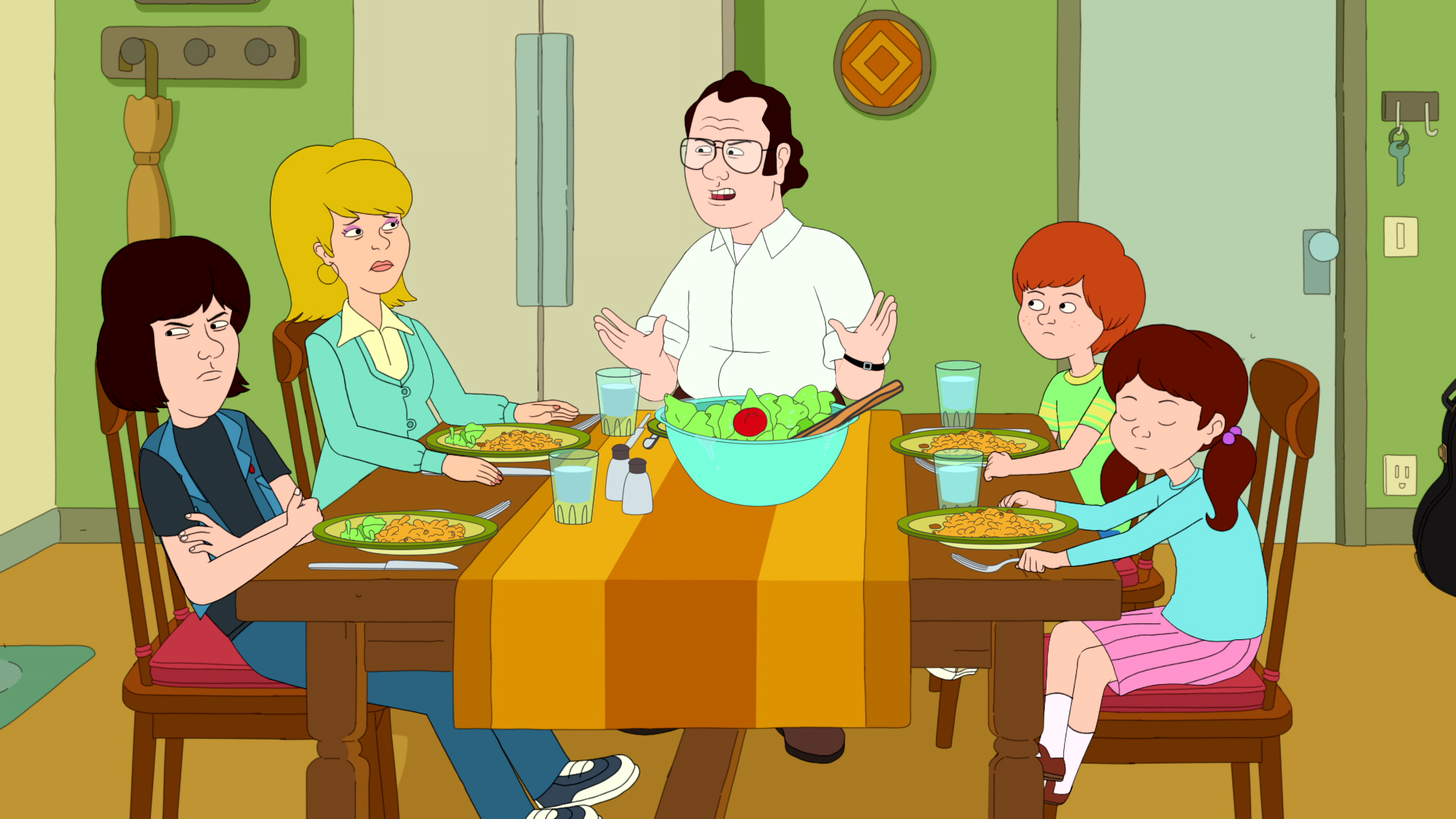If there is a God or any other higher power watching over us, they will bless all Netflix subscribers with 10 more seasons of F is for Family. A serialized animated series now in its second season from Bill Burr and The Simpsons’s Michael Price, the immensely funny show captures the beauty, stress, fragility, and utter madness of growing up lower middle class in a way that is unabashedly honest. It may be set in the 1970s, but that doesn’t matter in the grand scheme of things. This is a show about realizing everyone is doing their best to figure out life one day at a time, and we need more programs like it if we are ever going to better understand one another.
Picking up three weeks after the season one finale that found Frank Murphy (Burr) losing his job at the airport, the second season of F is for Family begins in a tough place. Frank is battling depression from his continued unemployment, Sue (Laura Dern) is struggling to hold the family together while also being the household’s only breadwinner, Kevin (Justin Long) is chasing his dream of becoming a rock star, Maureen (Debi Derryberry) is still a bit too young to fully appreciate the chaos at hand, and Bill (Haley Reinhart) is caught in the middle of it all.
The financial troubles in the Murphy household are a terrific launching point for season two. By reintroducing us to the Murphy family in the midst of this problem, we get a feel for how money and the lack thereof changes the dynamics of various relationships. It’s an efficient way to reveal an entirely different side of Frank and Sue’s relationship, which comes into play again and again as the season progresses and their problems begin to change. There is a bond between the members of the Murphy family that may appear somewhat absurd to outsiders, but to them, it’s the most important thing in the world (even if they would never tell one another such things).
The relationship between Frank and Sue is perhaps the biggest focus of season two, with many episodes featuring flashbacks to 1958 so we can get a feel for how they came to be the dysfunctional, yet loving couple they are today. Frank’s lack of employment leads him to question his own masculinity, which, in turn, leads him to cut down his wife’s growing success in the workplace rather than celebrate it. This is a time before our culture was as accepting of women working full-time, let alone being the principal breadwinners of a family as they are now, and the tension it creates within the Murphy family offers some great insight into how our surroundings often shape our world views.
One of the many things that sets F is for Family apart from other animated family sitcoms, aside from its serialization, is how closely its world and the people in it reflect our own. The family, their neighbors, and even the oddball strangers they meet are all caricatures of people you either know or have met in your own life. Some of their behavior may be amplified to a cartoonish level for comedic effect, like the closeted gay man whose wife distracts him from flirting with a snowman in the season opener, but the show is careful to never let a bit or personality trait go so far as to distract from the very real problems the characters are facing. This makes the humor more relatable, and more importantly helps the viewer to better connect with the events unfolding on screen.
F is For Family was not always planned as a serialized narrative, but the decision to build and rely on series-long arcs makes all the difference in quality with the release of season two. These episodes would stand perfectly good on their own, but when viewed – or as we say these days, binged – as a whole, the impact on the consumer is something very special. If Bojack Horseman is the comfort Netflix created to help those who sometimes feel they may truly be insane, then F is for Family is the show for everyone who has ever thought the people around them were insane. Here, more than any other animated series (and most scripted sitcoms), we are presented the basic truth that everyone is crazy and everyone is struggling all the time, but that’s okay because somehow love still finds a way. It may not feel like that right now depending on your situation, yet it remains true. Love is not all you need to get by, but it is an essential part of life. In season two, the Murphys learn to appreciate this in a way few fictional characters have, and I cannot wait to see where their lives go from here.













